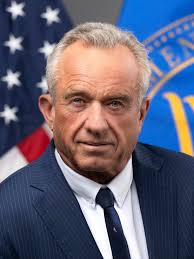
Introduction
Robert F. Kennedy Jr., commonly known as RFK Jr., has emerged as a notable contender in the political realm, bringing a unique perspective as the son of the late Senator Robert F. Kennedy and the nephew of President John F. Kennedy. His candidacy for the 2024 presidential elections signifies a possible resurgence of political dynasties in the United States, coupled with a focus on environmental issues and public health.
Current Political Landscape
RFK Jr. has officially announced his candidacy as an independent. This decision has been met with both enthusiasm and skepticism, especially considering his previous ties to the Democratic Party. According to recent polls, his platform, which emphasizes vaccine skepticism and environmental advocacy, resonates with a segment of voters disillusioned by conventional political choices.
His campaign has gained attention for challenging the status quo on public health policies, particularly regarding vaccines. RFK Jr. argues for greater transparency and safety in vaccine development, a stance that has polarized opinions across the political spectrum.
Key Issues and Public Response
Environmental issues play a significant role in RFK Jr.’s platform. He advocates for aggressive measures to combat climate change and promote sustainable energy sources. His background as an environmental attorney lends credibility to his proposals, which include stricter regulations on pollution and corporate accountability.
This dual focus on public health and the environment has attracted a diverse supporter base that includes both traditional liberals and more conservative voters who prioritize individual freedoms. Analysts suggest that RFK Jr.’s unique position could disrupt the typical two-party electoral dynamic in the upcoming election.
Conclusion
As RFK Jr. continues to build momentum heading into 2024, his ability to unify various voter demographics around his platform will be crucial. Experts predict that if he maintains his current trajectory, he could significantly influence the electoral landscape, prompting established parties to reconsider their strategies. His campaign serves as a reminder of the ongoing evolution in American political attitudes, particularly in regards to health, environment, and governance. It remains to be seen whether RFK Jr. can transform his message into substantial electoral success, but his presence is undoubtedly reshaping discussions moving forward.



